To address the issue of AC not blowing hard, check and replace the air filter, as a clogged filter can restrict airflow. Additionally, inspect the vents for any blockages and ensure that the thermostat settings are optimal for efficient cooling.
Is your AC not blowing hard, leaving you sweltering in the heat? If you’re a novice in the realm of air conditioning troubleshooting, fear not! In this guide, we’ll unravel the mysteries behind an underperforming AC and explore simple solutions to restore its powerful airflow. Say goodbye to discomfort as we delve into the common reasons behind an AC not blowing hard and equip you with easy-to-follow steps to address the issue. Let’s get your cooling system back on track!
Importance of Identifying and Resolving Issues with an AC Not Blowing Hard
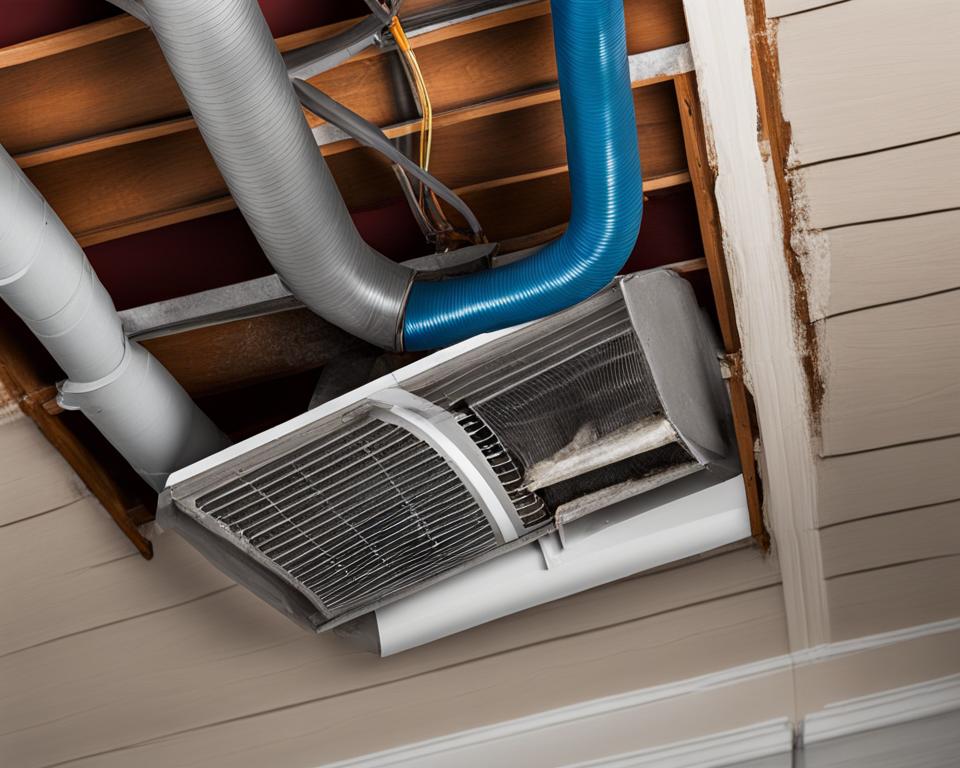
1. Energy Efficiency and Cost Savings:
An AC system struggling to blow air with sufficient force often indicates underlying inefficiencies. These inefficiencies can lead to increased energy consumption as the system works harder to compensate. Identifying and resolving issues with an AC not blowing hard can contribute to enhanced energy efficiency, resulting in lower utility bills and long-term cost savings.
2. Enhanced Comfort Levels:
The primary purpose of an AC system is to create a comfortable indoor environment. When the system is not blowing hard, it fails to distribute cool air evenly throughout the space, leading to uneven temperature zones. Resolving this issue ensures that each corner of the room receives an adequate amount of cooled air, thereby enhancing overall comfort levels.
3. Prolonged Equipment Lifespan:
An AC system struggling to blow hard is likely under increased stress, potentially causing wear and tear on various components. Addressing and rectifying these issues promptly can contribute to prolonging the lifespan of the equipment. Regular maintenance and timely repairs mitigate the risk of more significant and costly breakdowns, preserving the longevity of the AC unit.
4. Improved Indoor Air Quality:
A properly functioning AC system plays a vital role in maintaining indoor air quality by circulating and filtering the air. When the system is not blowing hard, it may struggle to effectively filter out dust, allergens, and pollutants. Identifying and resolving issues promptly ensures that the AC system can perform its air purification functions optimally, contributing to a healthier indoor environment.
5. Prevention of Potential Safety Hazards:
Certain issues with an AC not blowing hard may be indicative of electrical or mechanical malfunctions. Ignoring these problems can pose safety hazards, such as the risk of electrical fires or the release of harmful refrigerants. Regular inspection and timely resolution of issues help prevent potential safety hazards, ensuring the well-being of occupants and the property.
6. Optimal Temperature Regulation:
A well-functioning AC system is essential for maintaining consistent and desirable temperatures within a space. When the system is not blowing hard, temperature regulation becomes compromised, leading to fluctuations and discomfort. Identifying and resolving issues with the AC not blowing hard ensures that the system can achieve and maintain the desired temperature levels efficiently.
7. Enhanced System Performance during Peak Seasons:
In regions with extreme temperatures, AC systems often experience peak usage during the hot summer months. An AC not blowing hard may struggle to cope with increased demand, resulting in inadequate cooling. Addressing issues promptly ensures that the system performs optimally during peak seasons, preventing discomfort and potential system failures when it is needed most.
Signs of AC Not Blowing Hard

When your air conditioning system is not functioning at its optimal capacity, it becomes evident through various signs. One of the most noticeable issues is the AC not bowing hard, which can lead to discomfort and reduced efficiency in cooling your space. Identifying these signs early on can help you address the problem promptly, ensuring a comfortable indoor environment during hot weather.
1. Weak Airflow from Vents:
The most apparent sign of an AC not blowing hard is the weakened airflow emanating from the vents. Instead of feeling a strong, consistent stream of cool air, you might notice a feeble and inadequate flow. This symptom could be attributed to several factors, including a clogged air filter, malfunctioning blower motor, or issues with the ductwork. The restricted airflow not only diminishes the cooling effect but also puts additional strain on the entire HVAC system.
2. Inconsistent Temperature Distribution:
Another key indicator of an AC not blowing hard is inconsistent temperature distribution throughout your living space. Certain rooms may feel warmer than others, highlighting an imbalance in the airflow. This disparity could stem from issues like clogged ducts, improper duct design, or a malfunctioning thermostat. Addressing these problems is crucial to achieving uniform cooling and preventing certain areas from being uncomfortably warm while others remain adequately cooled.
3. Longer Cooling Cycles:
When your AC is struggling to blow air hard, it tends to result in longer cooling cycles. The system has to work harder and for extended periods to reach the desired temperature, leading to increased energy consumption and potential wear and tear. Prolonged cooling cycles not only affect the efficiency of the AC unit but also contribute to higher utility bills, making it imperative to address the AC not blowing hard issue promptly.
4. Unusual Sounds from the HVAC System:
A malfunctioning air conditioning system often produces unusual sounds, signaling underlying problems. If you hear strange noises such as rattling, clanking, or whistling, it could be indicative of issues causing the AC not to blow hard. These noises might be attributed to a malfunctioning blower motor, loose components, or even debris obstructing the airflow. Timely inspection and maintenance can help identify and rectify these issues before they escalate.
5. Ice Formation on the Evaporator Coils:
An unexpected consequence of an AC not blowing hard is the formation of ice on the evaporator coils. Reduced airflow can lead to inadequate heat exchange, causing condensation to freeze on the coils. This ice buildup further impedes the system’s ability to cool effectively and, if left unaddressed, can result in more severe damage to the compressor. Regularly checking for ice formation on the evaporator coils can serve as an early warning sign of the AC not blowing hard issue.
Common Causes of AC Not Blowing Hard
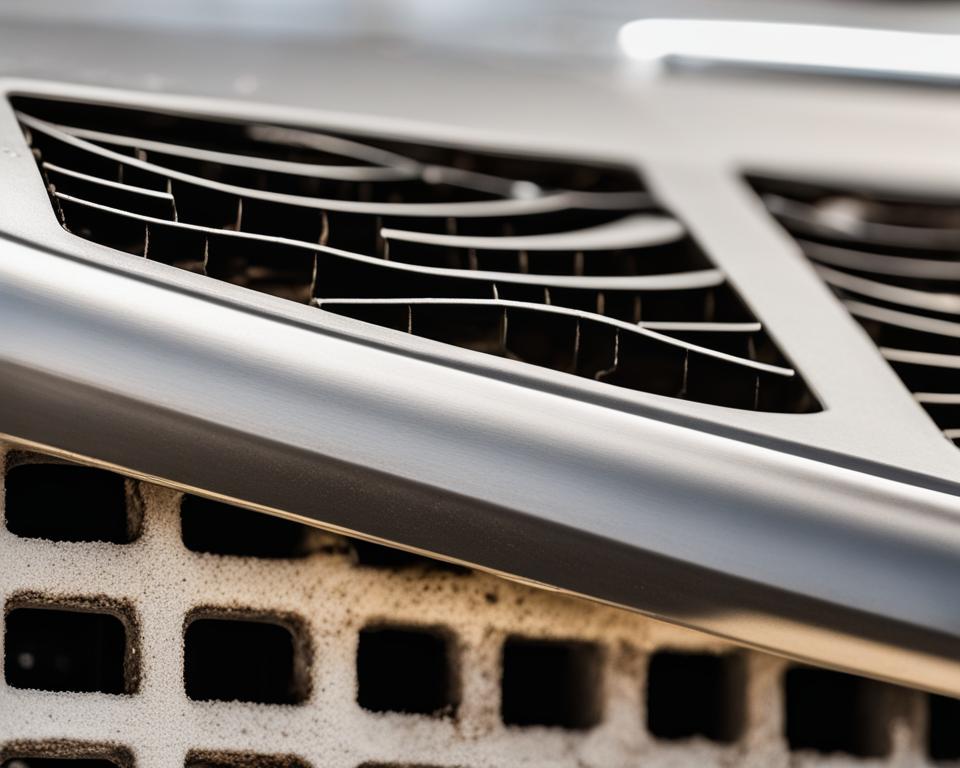
When the scorching heat of summer hits, a fully functioning air conditioner is a necessity for comfort. However, if you find your AC not blowing hard, it can be frustrating and uncomfortable. Several factors can contribute to this issue, ranging from simple maintenance problems to more complex mechanical issues. Here, we will explore 10 common causes of AC not blowing hard in detail.
1. Dirty Air Filters:
The most common culprit behind an AC not blowing hard is dirty or clogged air filters. Over time, these filters accumulate dust and debris, restricting airflow. As a result, the AC unit has to work harder to push air through, leading to reduced airflow and cooling efficiency. Regularly replacing or cleaning air filters is crucial for optimal AC performance and avoiding the “AC Not Blowing Hard” dilemma.
2. Blocked or Restricted Vents:
Blocked or closed vents can significantly impede the airflow from your AC system. Ensure that all vents are open and unobstructed to allow unrestricted airflow throughout your home. Closing vents in unused rooms may seem like an energy-saving strategy, but it can disrupt the balance of the entire system, causing the AC not to blow hard in other areas.
3. Low Refrigerant Levels:
Refrigerant is essential for the cooling process in your AC system. If there’s a refrigerant leak or low levels, the cooling efficiency decreases, leading to a weakened airflow. A professional HVAC technician should inspect and recharge the refrigerant levels to ensure the AC is blowing hard and efficiently.
4. Faulty Blower Motor:
The blower motor is responsible for pushing air through the ductwork and into your living spaces. A malfunctioning or weakened blower motor can result in insufficient airflow, causing the AC not to blow hard. Regular maintenance, including lubrication and cleaning, can help prevent motor issues.
5. Clogged Evaporator Coil:
Over time, the evaporator coil can accumulate dirt and grime, hindering its ability to absorb heat and cool the air effectively. When the coil is clogged, the AC system works harder, but the airflow remains weak. Regular maintenance, including coil cleaning, is essential to prevent this issue.
6. Issues with the Ductwork:
Leaks, gaps, or blockages in the ductwork can lead to a significant reduction in airflow. Inspect the ducts for any visible issues, and if necessary, enlist the help of a professional to seal leaks and ensure proper ductwork functionality. Addressing ductwork problems can often resolve the AC not blowing hard issue.
7. Incorrect Thermostat Settings:
Sometimes, the problem may be as simple as incorrect thermostat settings. Ensure that the thermostat is set to the desired temperature and that the fan is set to “Auto” rather than “On.” Running the fan continuously can lead to a perception of weak airflow, even if the cooling capacity is adequate.
8. Dirty or Blocked Condenser Unit:
The condenser unit, located outside, plays a crucial role in dissipating heat from the refrigerant. If the condenser coils are dirty or obstructed by debris, the AC system’s efficiency diminishes, resulting in poor airflow. Regularly clean the condenser unit to maintain optimal performance.
9. Undersized AC Unit:
If the AC unit is too small for the size of the space it is cooling, it may struggle to provide sufficient airflow and cooling. Consulting with an HVAC professional to determine the appropriate size for your home can prevent the “AC Not Blowing Hard” issue associated with an undersized unit.
10. Electronic Control Issues:
Faulty electronic controls, such as a malfunctioning thermostat or sensor, can disrupt the normal operation of the AC system. This may lead to inadequate cooling and reduced airflow. A thorough inspection of the electronic components by a qualified technician can identify and address these issues.
DIY Solutions for Improved Airflow When Your AC Is Not Blowing Hard
If you’ve noticed that your air conditioner is not blowing as hard as it used to, it could be due to various reasons affecting its airflow. Before calling in a professional, consider these 7 do-it-yourself solutions to improve the airflow and enhance your AC’s performance.
1. Check and Replace the Air Filter:
One of the most common reasons for reduced airflow is a clogged or dirty air filter. A dirty filter restricts the air intake, making your AC work harder and reducing the airflow. Locate the air filter in your HVAC system, usually found near the air handler or furnace, and replace it if it’s dirty. Aim to check and replace the filter every 1-3 months to ensure optimal performance. This simple step can significantly improve airflow, especially if your AC is not blowing hard.
2. Clean the Evaporator Coils:
Over time, the evaporator coils in your AC can accumulate dust and dirt, hindering heat exchange and reducing airflow. Turn off the power to your AC unit and carefully clean the coils using a soft brush or a vacuum cleaner. If the dirt is stubborn, a mixture of water and mild detergent can be applied. Ensure the coils are dry before restarting your AC. Regular cleaning of the evaporator coils can help restore airflow and improve overall efficiency.
3. Inspect and Clean the Condenser Unit:
The condenser unit, typically located outside, can also affect airflow if it’s surrounded by debris or vegetation. Check for any obstructions like leaves, branches, or dirt that might be limiting the airflow. Gently clean the exterior of the unit using a hose or a soft brush. Keep the area around the condenser clear to ensure proper airflow. This DIY solution can be particularly effective when your AC is not blowing hard.
4. Examine the Ductwork for Leaks:
Leaky ducts can significantly impact the efficiency of your AC system, leading to reduced airflow. Inspect the ductwork for any visible leaks, gaps, or loose connections. Seal any leaks using duct tape or mastic sealant. Properly insulated and sealed ducts ensure that the conditioned air reaches its destination without unnecessary losses, improving overall airflow throughout your home.
5. Adjust the Air Vents:
Sometimes, the issue with airflow can be as simple as closed or blocked air vents. Ensure that all the vents in your home are open and unobstructed by furniture or other objects. Additionally, check the vents for accumulated dust and debris, as they can impede airflow. Properly adjusted and clean air vents help in maintaining a balanced and efficient airflow, especially when your AC is not blowing hard.
6. Upgrade to a High-Efficiency Air Filter:
Consider upgrading to a high-efficiency air filter with a MERV rating suitable for your HVAC system. While these filters may be slightly more expensive, they trap smaller particles and prevent them from clogging the system. This upgrade can improve airflow, enhance air quality, and reduce the strain on your AC unit, making it a worthwhile investment when your AC is not blowing hard.
7. Ensure Proper Insulation:
Inadequate insulation can lead to temperature imbalances in your home, causing your AC to work harder to maintain the desired temperature. Check the insulation in your walls and attic and make necessary improvements. Well-insulated homes create a more stable environment, allowing your AC to operate efficiently and blow air more effectively.
When to Seek Professional Help
If you have tried the DIY fixes and are still experiencing low airflow in your AC system, or if you prefer to have a professional handle the issue from the start, it is time to seek professional assistance. AC systems can be complex, and identifying the specific cause of low airflow requires expertise. A trained professional can thoroughly inspect your AC system, diagnose the problem, and provide the appropriate solutions.
Professional assistance is especially crucial when dealing with issues like AC not blowing hard enough. HVAC technicians have the knowledge and tools to identify underlying issues that may not be apparent to an untrained eye. By entrusting the job to a professional, you can ensure that the problem is properly diagnosed and resolved, saving you time and frustration.
When it comes to AC systems, it is always recommended to seek professional help if you are unsure or unable to fix the issue on your own. Attempting to DIY complex repairs can lead to further damage or even personal injury. By relying on the expertise of professionals, you can have peace of mind knowing that your AC system is in good hands.
Benefits of Professional Assistance
- Expertise: HVAC professionals have the knowledge and training to accurately diagnose and fix low airflow issues. They can identify the root cause of the problem and provide effective solutions.
- Efficiency: Professionals have the necessary tools and equipment to efficiently repair and restore your AC system’s airflow. They can get the job done in a timely manner, minimizing downtime and discomfort.
- Safety: Handling AC repairs can be dangerous, especially when dealing with electrical components or refrigerant. Professional technicians are trained to work safely and follow proper safety protocols.
- Long-Term Solutions: DIY fixes may offer temporary relief, but professional assistance ensures a long-term solution to low airflow problems. By addressing the root cause, professionals can prevent the issue from recurring in the future.
When to contact an HVAC Professional
- If you have tried basic troubleshooting steps like checking for dirty air filters and removing obstructions, but the problem persists.
- If you are unsure about the cause of the low airflow or lack the knowledge, tools, or expertise to fix the issue on your own.
- If you notice any unusual sounds, smells, or other signs of a more serious problem along with the low airflow.
- If you want to ensure that your AC system is properly maintained and functioning optimally.
Remember, addressing low airflow issues promptly with professional assistance can prevent further damage to your AC system and ensure your comfort during hot summer months. Don’t hesitate to reach out to a trusted HVAC professional who can help diagnose and fix the issue, restoring proper airflow to your home.
Conclusion
In conclusion, discovering the root causes behind an AC not blowing hard is crucial for maintaining a comfortable indoor environment. Whether it’s a clogged filter, a malfunctioning fan, or issues with the ductwork, addressing these issues promptly can significantly improve your air conditioner’s performance. Regular maintenance, including filter replacements and cleaning, plays a key role in preventing airflow problems. If problems persist, seeking professional assistance ensures a thorough assessment and effective solutions. Remember, a well-functioning AC not only enhances comfort but also contributes to energy efficiency. Stay cool and informed to enjoy the full benefits of your air conditioning system.

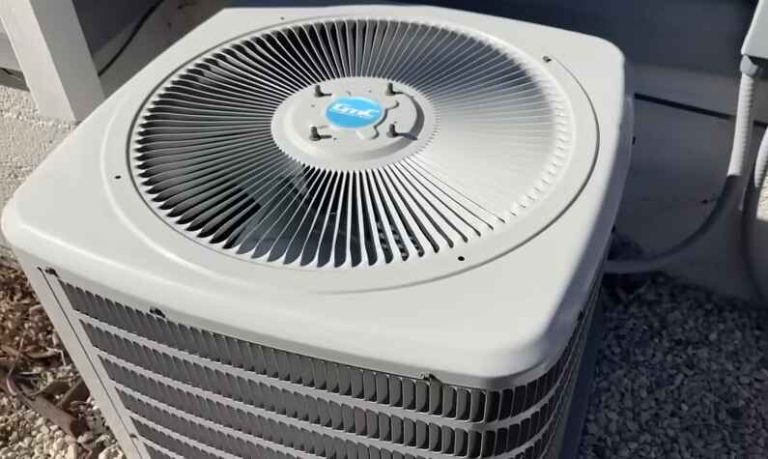
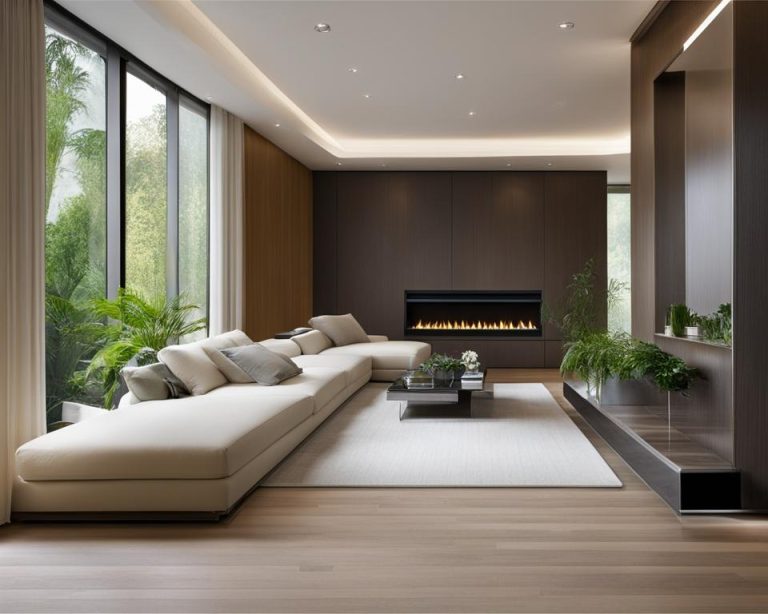
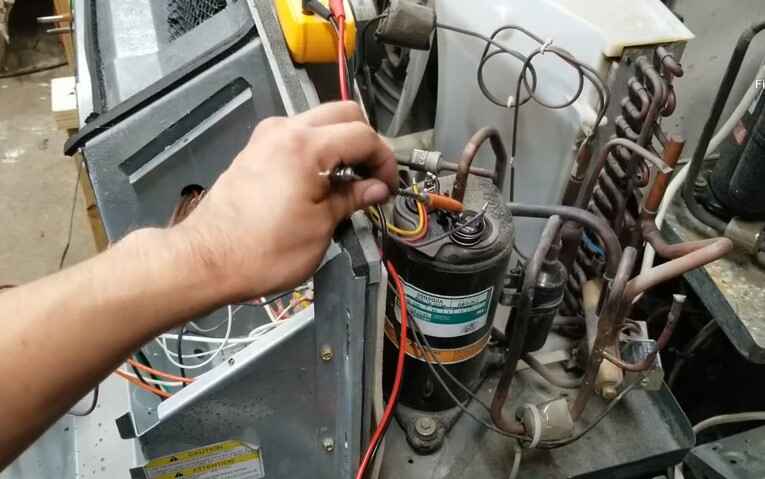
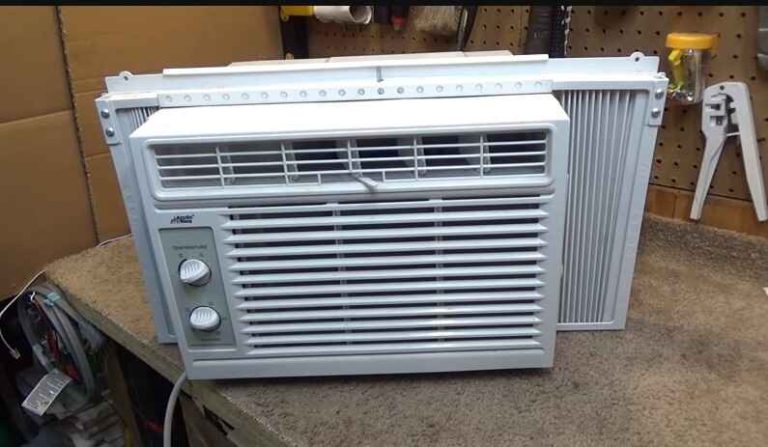
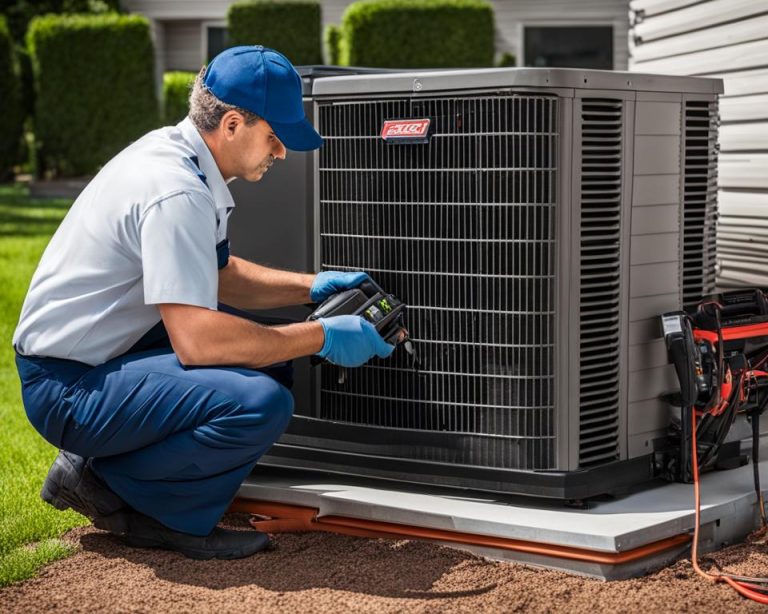
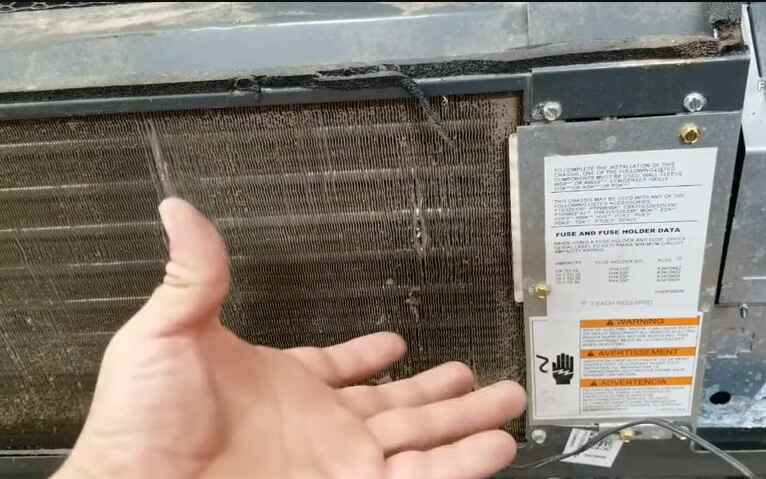
2 Comments